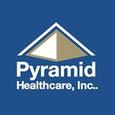There’s no doubt that Alcoholics Anonymous has become a huge part of the world of addiction recovery since its founding in 1935. The 12-step program is designed to lead members to a spiritual awakening to achieve sobriety.
Many programs – including those operated by Pyramid Healthcare – incorporate the teachings and tenets of Alcoholics Anonymous into the care that they provide. In some cases, inpatient facilities will host AA meetings on-site, or transport clients to off-site meetings in the community.
Some people may also be required to attend AA meetings as a requirement of their court-ordered treatment plan.
However, Alcoholics Anonymous isn’t for everyone. No matter the reason, choosing not to participate in AA meetings doesn’t make your recovery or sobriety any less valid. Addiction recovery is a very unique and personal process. Finding a support program that makes you feel comfortable and inspired is one of the most important things you can do for your recovery.
There are alternatives to AA for individuals who feel that another program may be the right one for them. These support groups provide peer support and connections, as well as valuable tools for decreasing the risk of relapse. They are also free to join to individuals who are in recovery. Importantly, these four groups are just as effective as AA.
SMART Recovery
SMART Recovery focuses on the idea of empowerment over a person’s addiction, which is a contrast to the idea of powerlessness over addiction that is part of the AA 12-steps. This research-based program promotes abstinence from drugs, alcohol, and other addictive behaviors. Find meetings near you.
Women for Sobriety
Women for Sobriety is exclusively for women who are in recovery from addiction. This group believes that thoughts lead directly to actions, and that changing your thoughts can change your actions or behaviors. Members are encouraged to learn self-love and self-control while potentially experiencing spiritual growth. To receive information about WFS groups in your area, fill out their online contact form.
Secular Organization for Sobriety
Secular Organizations for Sobriety, or SOS, is a nonprofit secular recovery support group. The only requirement to participate is continued abstinence from drugs and alcohol. SOS does not stick to one theory of addiction; instead, it encourages its members to engage in individual, rational thought about the potential causes of their addictions and promotes the concept of personal responsibility. Look for an SOS meeting in your area.
LifeRing Secular Recovery
LifeRing operates based on the concept that those struggling with addiction are facing an internal battle between their “Addict Self” and their “Sober Self.” It’s up to individuals to use the power within themselves to control their addiction. LifeRing is there to provide support as its members work to develop inner strength and self-control.
Don’t give up on finding a support group if you’ve determined that AA’s philosophy and framework aren’t for you. Consult a mental health professional or addiction counselor. He or she can recommend support groups that align with your beliefs and goals, thus setting you up for success in the ongoing journey of recovery.
Desiree Patton is a Media Correspondent for Pyramid Healthcare, Inc., a provider of treatment for adults and teens suffering from addiction or substance abuse, as well as individuals with mental health disorders. Our locations in western, central, and eastern Pennsylvania allow us to provide comprehensive care across the entire state to people with behavioral health issues.

Post new comment
Please Register or Login to post new comment.